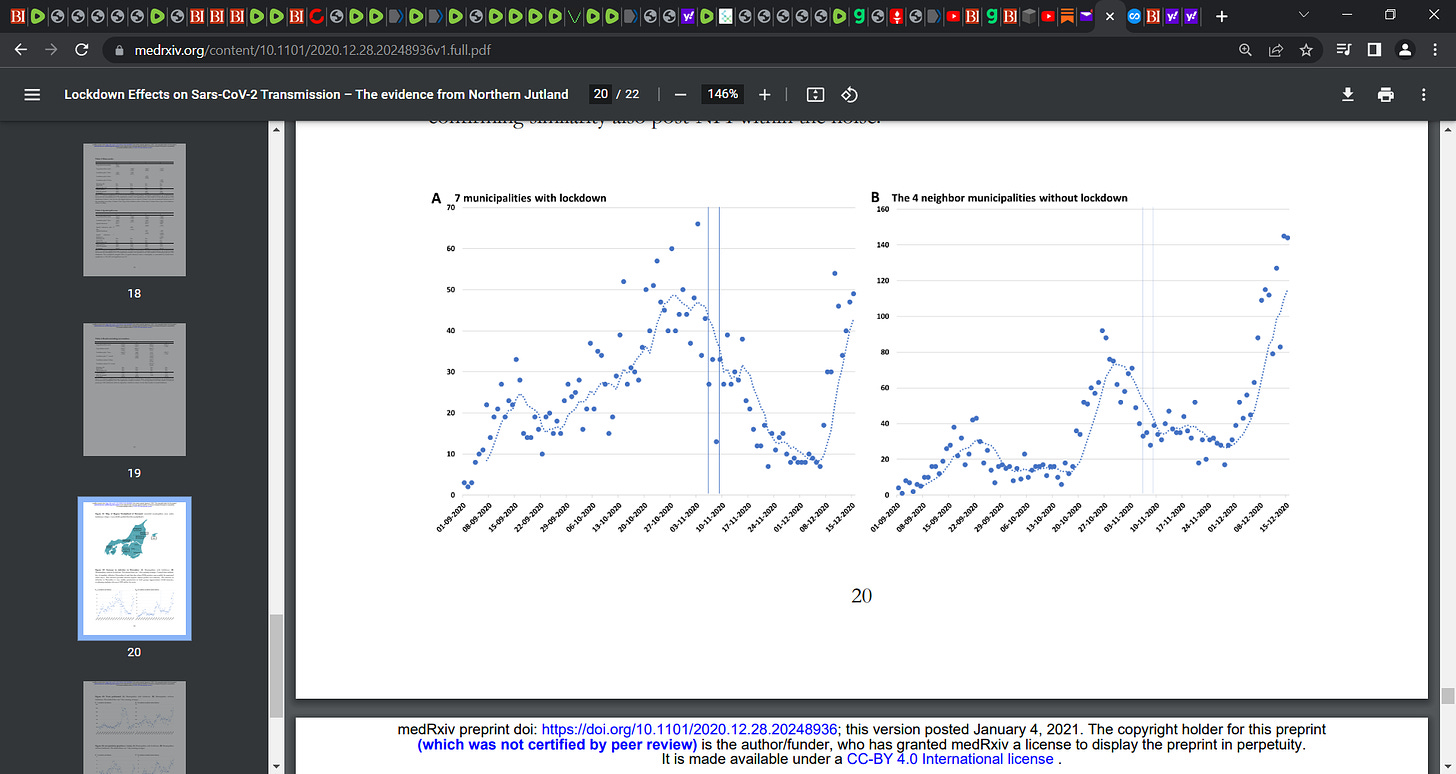Our analysis shows that while infection levels decreased, they did so before lockdown was effective, and infection numbers also decreased in neighbour municipalities without mandates.
Some key seminal evidence arguing against lockdowns and societal restrictions emerged in 2021 from a recent quasi-natural experiment (case-controlled experimental data) in the Northern Jutland region in Denmark. Seven of the 11 municipalities (similar and comparable) in the region went into extreme lockdown that involved a travel ban across municipal borders, closing schools, the hospitality sector and other settings and venues (in early November 2020) while the four remaining municipalities employed the usual restrictions of the rest of the nation (moderate). Researchers reported that reductions in infection had occurred prior to the lockdowns and also decreased in the four municipalities without lockdowns. Conclusion: surveillance and voluntary compliance make lockdowns essentially meaningless.

“The exact impact of lockdowns and other NPIs on Sars-CoV-2 transmission remain a matter of debate as early models assumed 100% susceptible homogenously transmitting populations, an assumption known to overestimate counterfactual transmission, and since most real epidemiological data are subject to massive confounding variables. Here, we analyse the unique case-controlled epidemiological dataset arising from the selective lockdown of parts of Northern Denmark, but not others, as a consequence of the spread of mink-related mutations in November 2020. Our analysis shows that while infection levels decreased, they did so before lockdown was effective, and infection numbers also decreased in neighbour municipalities without mandates. Direct spill-over to neighbour municipalities or the simultaneous mass testing do not explain this. Instead, control of infection pockets possibly together with voluntary social behaviour was apparently effective before the mandate, explaining why the infection decline occurred before and in both the mandated and non-mandated areas.
The data suggest that efficient infection surveillance and voluntary compliance make full lockdowns unnecessary at least in some circumstances.”
Moreover, in a similarly comprehensive prior analysis of global statistics regarding Covid, carried out by Chaudhry and company involved assessment of the top 50 countries (ranked as having the most cases of Covid) and concluded that “rapid border closures, full lockdowns, and widespread testing were not associated with Covid mortality per million people.” Conclusion: there is no evidence that the restrictive government actions saved lives.
Source – https://palexander.substack.com/p/denmark-northern-jutland-i-wrote
